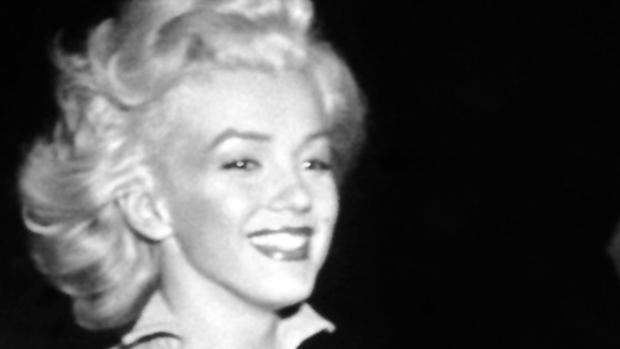Marilyn Monroe still lucrative 50 years after her death
(CBS News) This Sunday marks 50 years since Marilyn Monroe died. She was just 36 years old. Half a century later, her legend remains alive and well -- and quite lucrative.
In 2010, Jamie Salter's company, Authentic Brands, spent more than $25 million to acquire Monroe's name and likeness. The company's first priority: clean the market up.
Salter, chief executive officer of Authentic Brands, said, "I actually think this could be one of the greatest brands in the world. She's as famous as any celebrity that's alive today. ... She would have been extremely disappointed with how (her image) was managed over the last 30 years. They licensed out the brand for anything and everything, and we are big believers that that's not the way Marilyn should be licensed."
Salter assured Monroe's likeness will not be seen on shot glasses, pens or cheap T-shirts. What you will start to see, according to Salter, are Marilyn-branded spas, cafes, and high-end retail items.
Christopher Nickens, who has written extensively about Monroe, said, "Marilyn always balanced it, so that she never came off as cheap. That's another reason her appeal survives. There's a certain elegance to it."
Marilyn Monroe mystery: Where are her FBI files
Pictures: Early Marilyn Monroe photos
The makeover appears to be working so far. In 2008, Monroe was ranked number nine on Forbes' list of top-earning dead celebrities, with an annual gross of $6.5 million. The next two years, she didn't even place, but when she returned to the list in 2011 - a year after Authentic Brands took over and the same year Hollywood released "My Week with Marilyn" - Monroe's estate raked in $27 million, trailing only those of Elvis Presley and Michael Jackson.
Photographer Lawrence Schiller told CBS News no one managed the Marilyn brand like Monroe herself. Schiller worked with her in the early '60s, taking photos that would become some of her last.
Schiller said, "She was a very smart businesswoman. She knew when to use photography and when to stay out of the limelight. She knew when to go to Korea and entertain 30,000 troops. She knew the value of those five minutes in front of those troops."
But times have changed for Monroe's brand, according to Schiller.
"In the days that Marilyn was alive, you had glossy magazines, the covers were the most important thing, and you had the motion picture screen, bigger, larger-than-life," Schiller said. "There was nothing in between."
Back then, the camera was king, unless Monroe was around. Then, it played servant.
Schiller said, "The very first moment I met her, she caught me in the mirror and she looked at me and she said, 'You know, where you're standing, you're not gonna get a good picture of me. Now, if you go over there, you're really gonna get a good picture.' And I, very sheepishly, at 23 years old, went over there. She turned and looked over the shoulder. It was a million dollar picture. ... I realized at that moment that Marilyn Monroe knew more about photography than 90 percent of the photographers that shot her."
Schiller knows plenty about marketing Monroe. In 1952, he convinced her to let him sell nude photos to Playboy. In 1973, he organized Norman Mailer's controversial Monroe book. And this year, he released more photos of Monroe near the end of her life.
Schiller said, "She loved the images. As she got older, she rejected fewer of them. And I think the pictures by photographers who photographed her in the last five years of her life, I think those are the images she would love the most."
